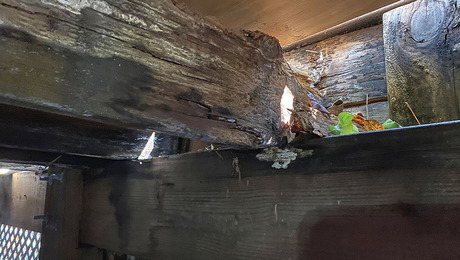*
Does anyone know of a good and relatively inexpensive circuit tracer to detect the location of wiring within plaster walls? The use would be to find those fun (and yes, non-code complying) hidden junction boxes in walls, ceilings, etc, as well as to trace individual wires themselves. I’ve tried one, (for $240) that didn’t seem to work very well, so I’m looking for some suggestions. A few notes to those who may have the same thoughts I have… 1. the deep scanning stud sensors are too sensitive to work for the purpose and will pick up any live electrical line, and 2. The plaster does not have metal lath, but is about 3/4″ to 1″ thick (lath+scratch+finish). Metal lath will attenuate the signals from the best of circuit tracers. So… any good recommendations?
Discussion Forum
Discussion Forum
Up Next
Video Shorts
Featured Story

Newer pressure treatments don't offer the same rot and decay resistance. Follow these simple strategies to give outdoor lumber its best chance of survival.
Highlights
"I have learned so much thanks to the searchable articles on the FHB website. I can confidently say that I expect to be a life-long subscriber." - M.K.














Replies
*
Does anyone know of a good and relatively inexpensive circuit tracer to detect the location of wiring within plaster walls? The use would be to find those fun (and yes, non-code complying) hidden junction boxes in walls, ceilings, etc, as well as to trace individual wires themselves. I've tried one, (for $240) that didn't seem to work very well, so I'm looking for some suggestions. A few notes to those who may have the same thoughts I have... 1. the deep scanning stud sensors are too sensitive to work for the purpose and will pick up any live electrical line, and 2. The plaster does not have metal lath, but is about 3/4" to 1" thick (lath+scratch+finish). Metal lath will attenuate the signals from the best of circuit tracers. So... any good recommendations?